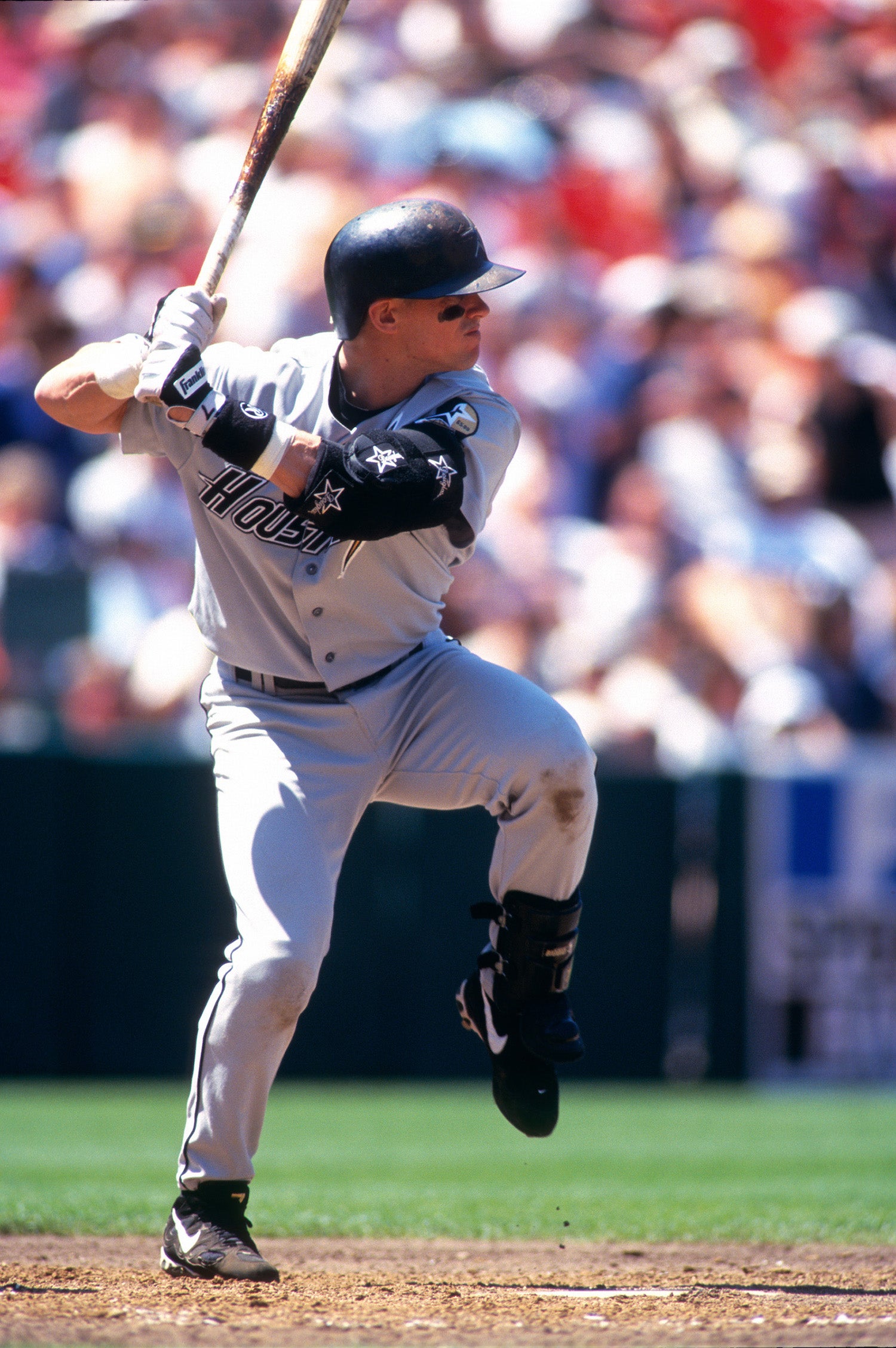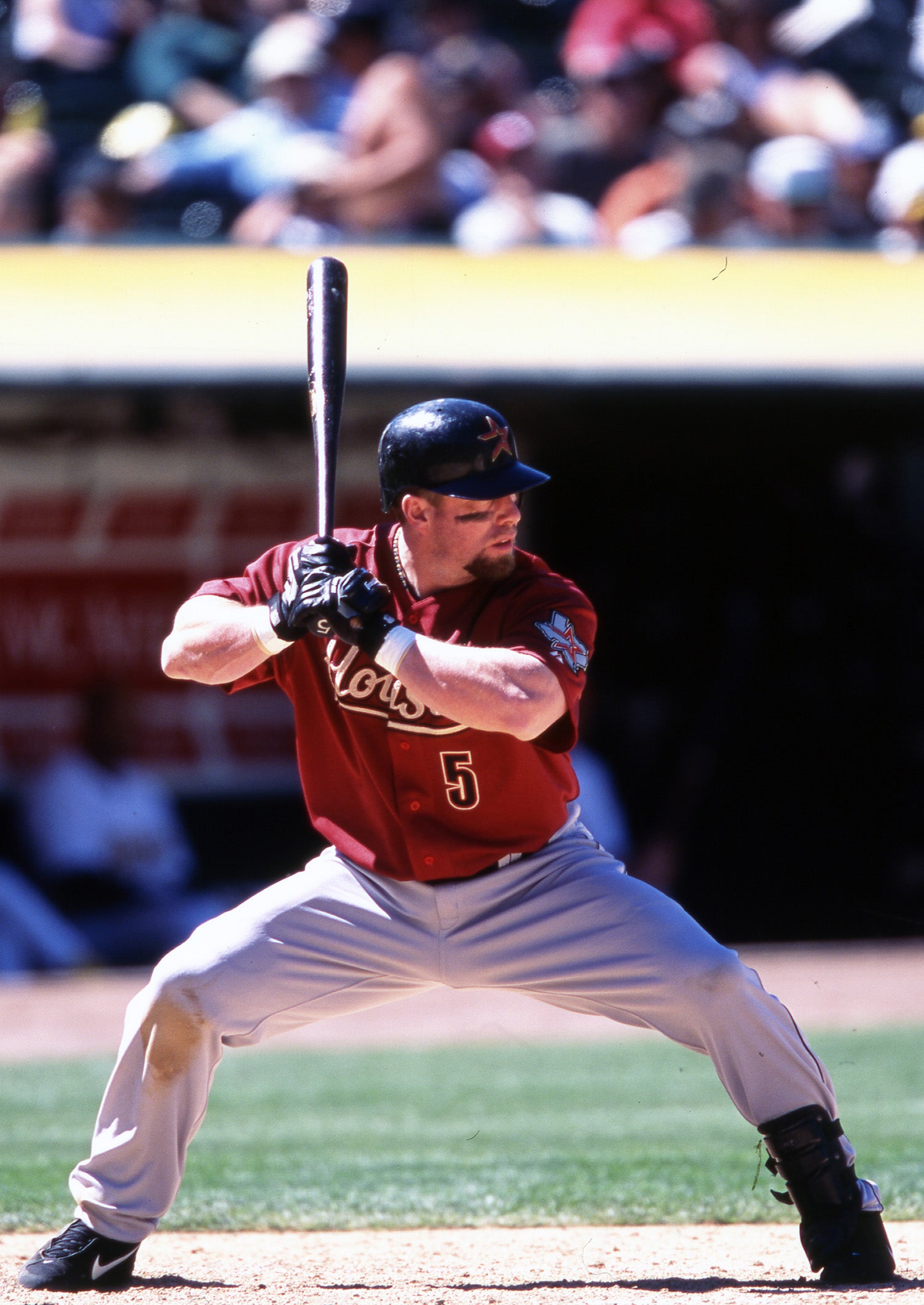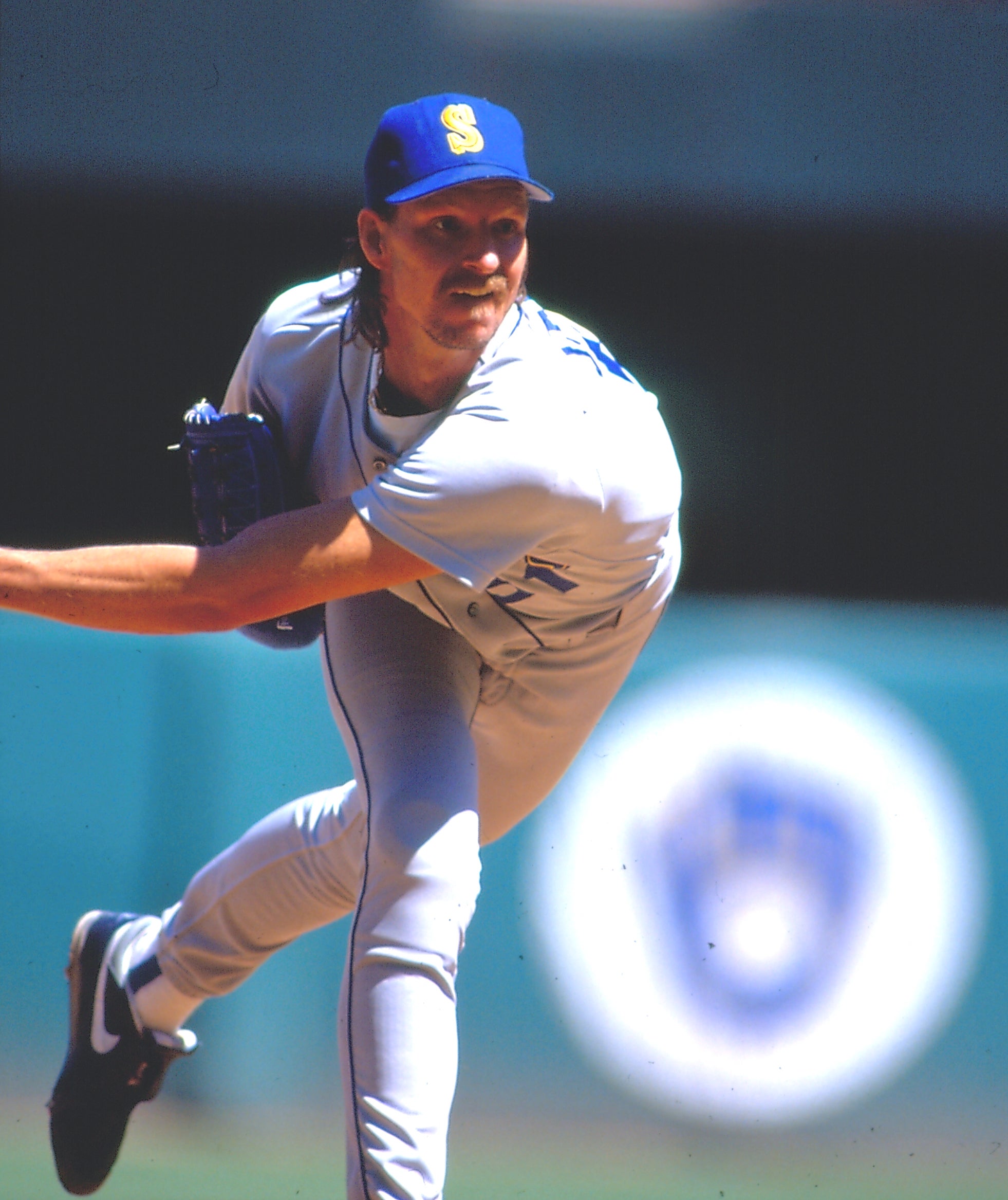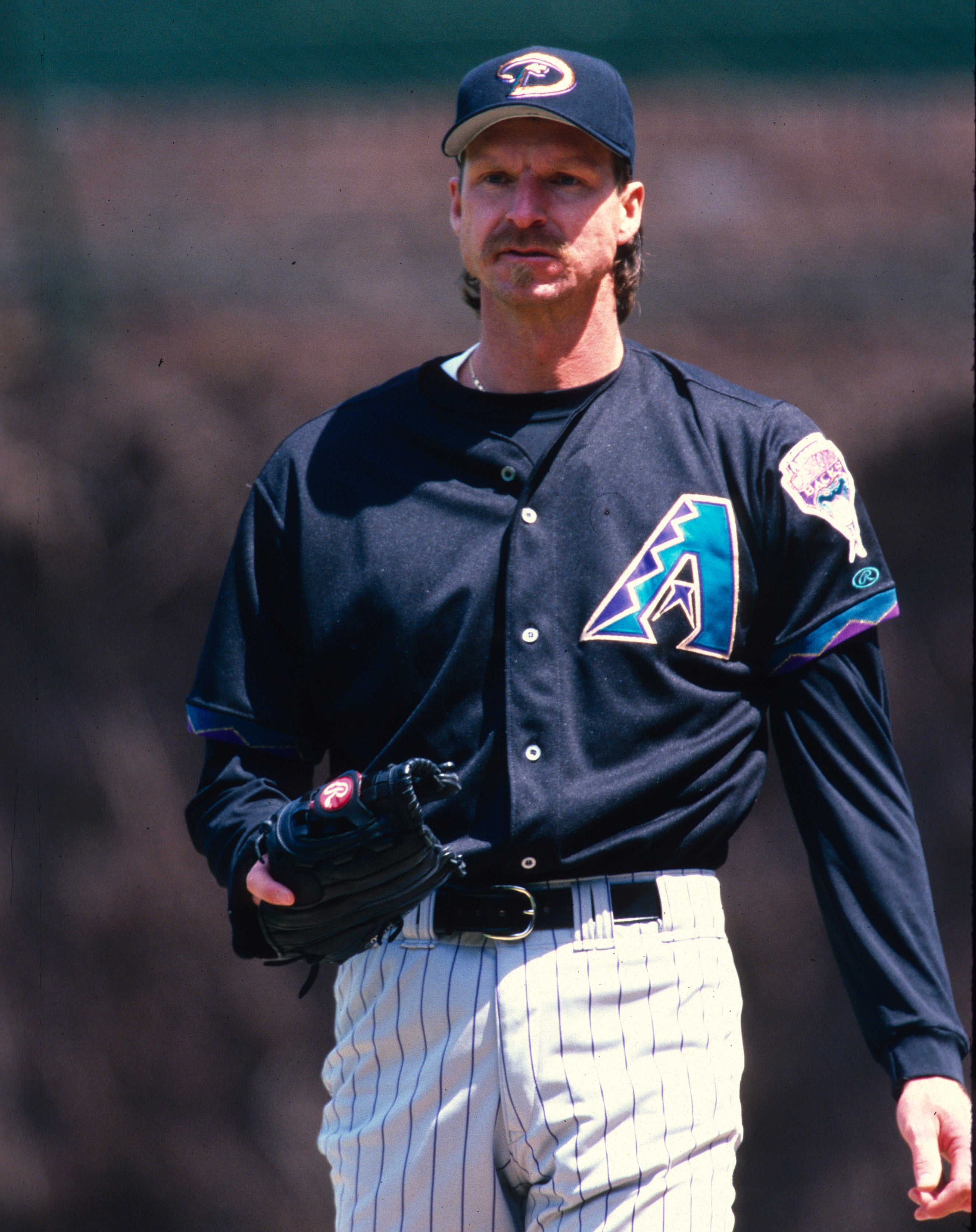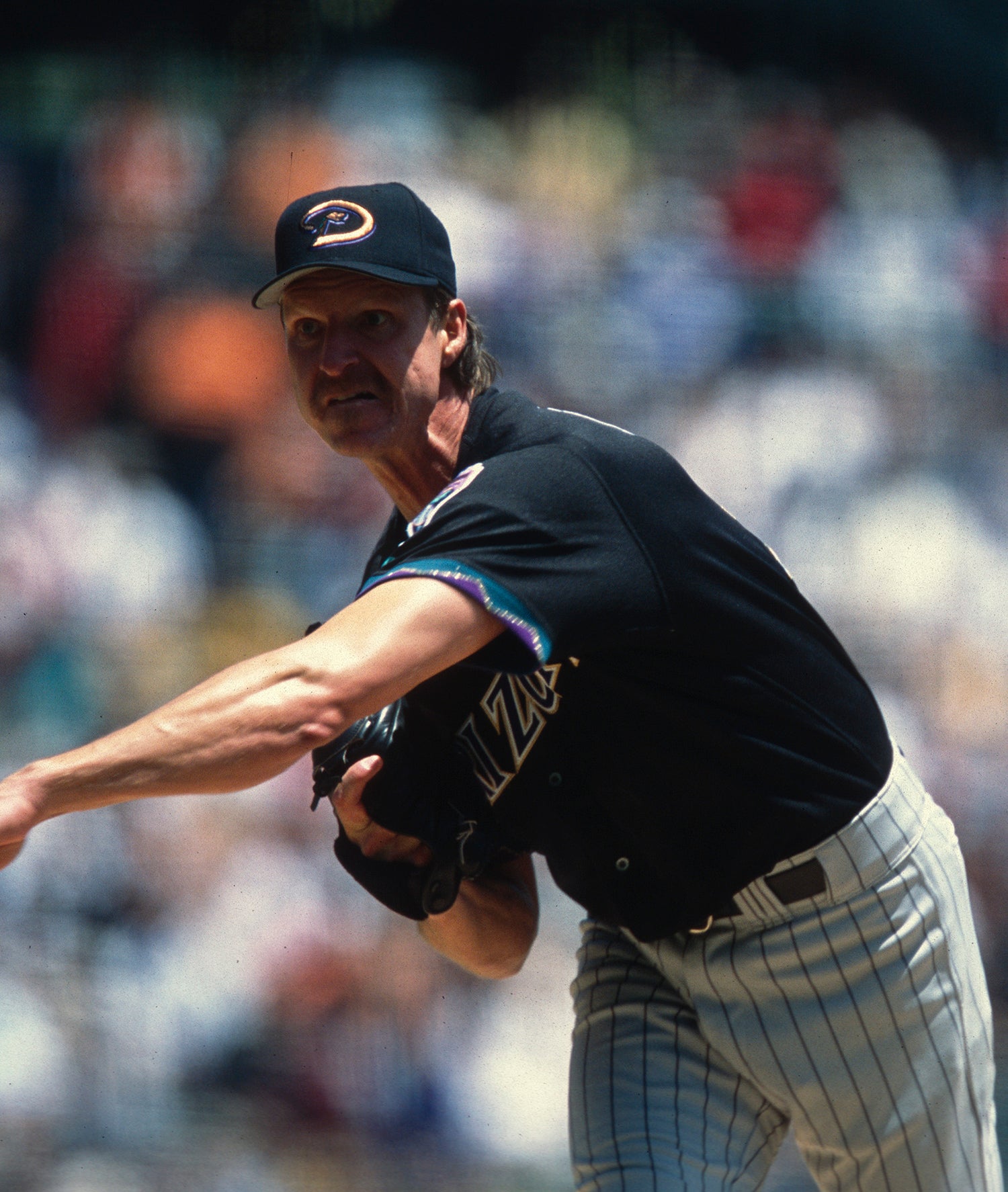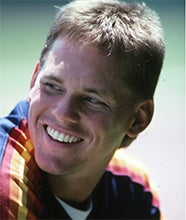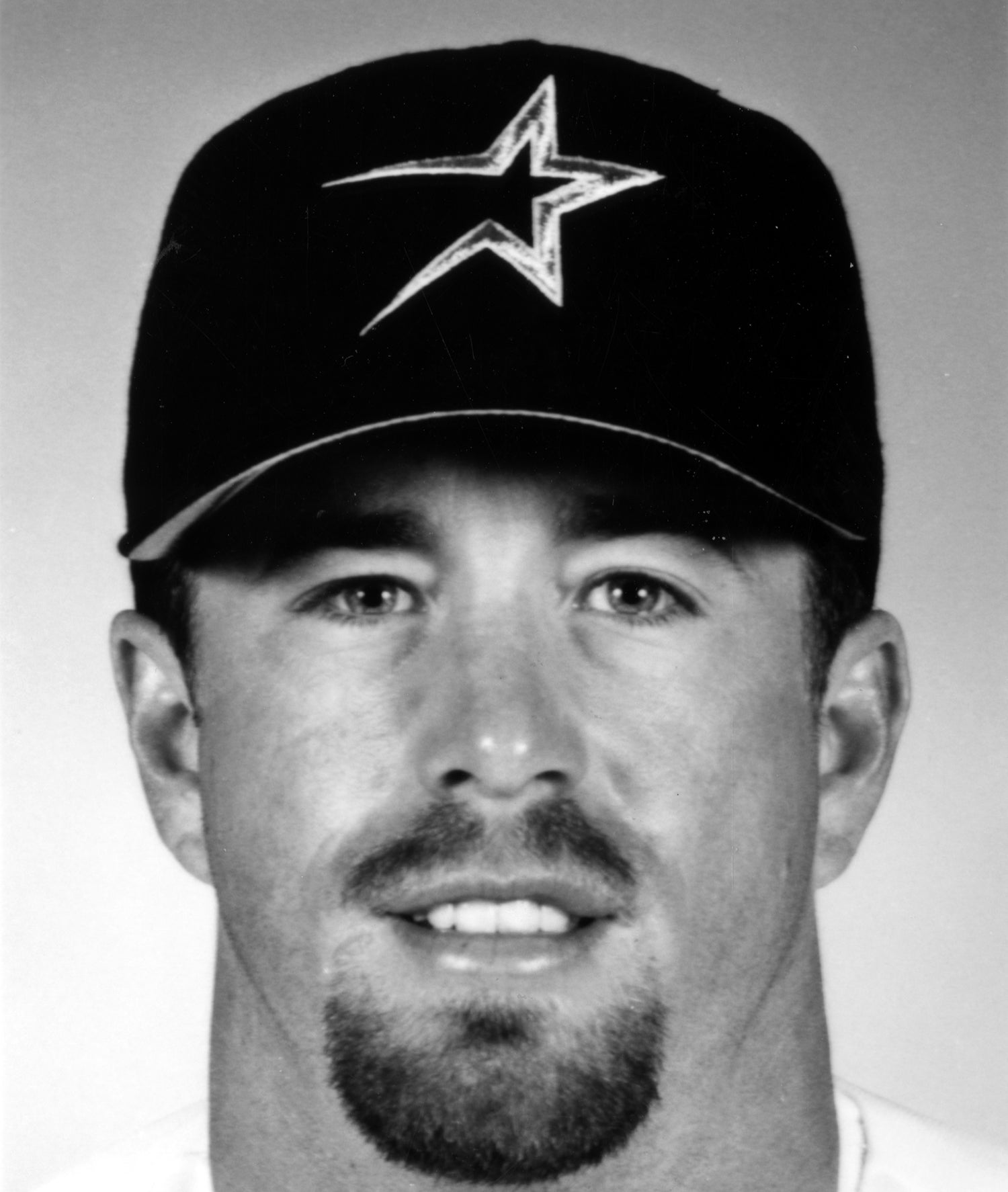- Home
- Our Stories
- Astros’ deal for Johnson launched Big Unit’s NL run of excellence
Astros’ deal for Johnson launched Big Unit’s NL run of excellence
On the day he was traded from the Mariners to the Astros, Randy Johnson was a 9-10 pitcher with a 4.33 ERA.
Rarely have statistics been as meaningless.
“We’ve never picked up a guy of this caliber for the stretch run,” Astros first baseman Jeff Bagwell told the Associated Press. “We didn’t hit the Powerball, but we still won a lottery.”
Official Hall of Fame Apparel
Proceeds from online store purchases help support our mission to preserve baseball history. Thank you!
Hall of Fame Membership
There is no simpler, and more essential, way to demonstrate your support than to sign on as a Museum Member.
On July 31, 1998 – minutes before the midnight trading deadline – the Astros acquired Johnson from the Mariners for prospects Freddy García, Carlos Guillén and John Halama. Houston led the National League Central by three-and-a-half games on that day, but the trade instantly made them more than mere contenders.
“A player like that in a short series,” said Pirates general manager Cam Bonifay, whose team was hosting the Astros that weekend, “can turn a season into a championship season.”
Johnson debuted for the Astros on Aug. 2 against the Pirates, striking out 12 batters over seven innings in Houston’s 6-2 victory. In 11 starts for the Astros down the stretch, Johnson was 10-1 with a 1.28 ERA, fanning 116 batters in 84.1 innings.
It was reminiscent of his best seasons in Seattle, when he became one of the game’s most fearsome pitchers.
“There are a lot of guys in this league who haven’t seen him,” the Astros’ Craig Biggio told the Associated Press following the trade, “and a lot of guys who are going to wish they hadn’t.”
Johnson debuted for the Expos in 1988 before a trade the following season sent him to Seattle. The 6-foot-10 left-hander, nicknamed the Big Unit, spent several years harnessing his fastball before putting it all together in 1993 at the age of 29, going 19-8 with a 3.24 ERA in 308 strikeouts. He won the American League Cy Young Award in 1995 after going 18-2 with a 2.48 ERA, then followed up an injury-plagued 1996 campaign by going 20-4 with a 2.28 ERA and 291 strikeouts in 1997.
Johnson’s contract was set to expire following the 1998 season. When he and the Mariners could not work out an extension, Johnson asked for a trade.
He pitched well for the Astros in the 1998 Postseason, but went a hard-luck 0-2 with a 1.93 ERA in two starts against the Padres in the NLDS – a series San Diego won in four games.
Following the World Series, the 35-year-old Johnson signed as a free agent with the Arizona Diamondbacks, who played their inaugural season in 1998. Johnson then embarked on one of the most dominant pitching stretches in history, winning four straight NL Cy Young Awards while leading the Diamondbacks to the 2001 World Series.
By the time Johnson had finished his career following the 2009 season, he had posted a 303-166 record, a 3.29 ERA (while pitching in one of the most offensively potent eras in history) and 4,875 strikeouts.
Following the trade to the Astros, Johnson won 170 games and struck out 2,662 batters in what amounted to 11-and-a-half seasons – the bulk of which came after his 35th birthday.
Johnson was elected to the Hall of Fame in 2015.
Craig Muder is the director of communications for the National Baseball Hall of Fame and Museum


